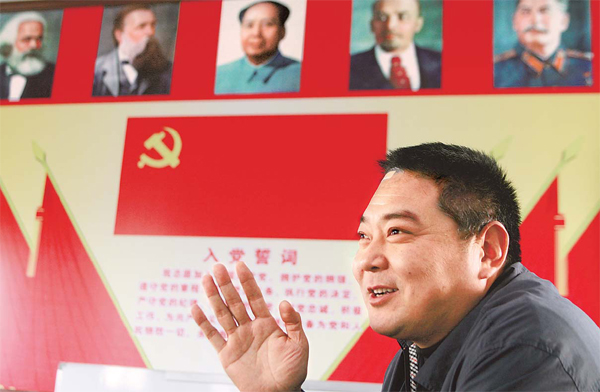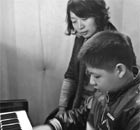Government and Policy
Democracy takes root in rural areas
By Hu Yinan (China Daily)
Updated: 2010-03-02 06:55
 |
Large Medium Small |
For weeks, representatives for the village's three units that would have to give away the most land refused to attend the meetings.
"They locked their doors and hid when I went for them," said Gao. "So one day I told the cadres to pass the message that I'm the bad guy and had all the land under my wing. If they wanted to come and argue with me, then they'd have to come to a meeting the next day. More than 100 people showed up. Even an 80-year-old man came driving a tractor."
The land issue was finally resolved a month later, when the village representatives agreed to back down. Jin Lina, deputy chief of Dengzhou's bureau of migrant services, said Maying residents will receive around 21,000 yuan in compensation for each mu (0.06 ha) of farmland they give up.
"The thing these new measures have taught is that, even though the majority rules, we have to work with every member of the minority as much as we can. After all, Chairman Mao said that 'Truth is often in the hands of the minority'," said Gao. However, he insisted village cadres' must be righteous in their dealings. "It's just like the fortune of a family depends on the quality of its patriarch," he said.
Not all families are lucky enough to have the help of an official like Gao.
 |
|
Wang Wuyi, Party chief for Heilong village in Dengzhou county, addresses a meeting ahead of a public vote by villagers to approve or reject a proposal.[Feng Yongbin/China Daily] |
In 1994, Xulou village, also in Dengzhou county, hit the headlines when four cadres murdered petitioner Chen Zhongshen.
Today, although the local media report that the democratic measures have brought harmony, the corruption Chen died fighting is still widespread, according to local sources who did not want to be identified.
A Xulou farmer in his 40s claimed village cadres had embezzled about a sixth of the residents' farmland, as well as a significant portion of State subsidies intended for farmers.
"The new measures have not improved the situation. Nothing has been resolved," said the farmer.
In response, the Organization Department of CPC Dengzhou Committee has set up a 24-hour hotline to report abuses of power and also conduct biweekly inspections of each village, said Zhang. "Without an effective supervision mechanism, all documents and measures are futile. We'll need plenty more than just procedures to make things work," he said.
As villagers nationwide are urged to follow the lead of Dengzhou, the countryside throughout Henan is awash with banners and posters promoting the democratic measures. However, the campaign has proven largely ineffective in reaching younger generations.
Li Xiangqing, 21, who lives in a village in Xixia, a county next to Dengzhou, said she and her friends "had no idea" about the measures.
"I've seen banners all around here but no one has ever told us anything about what they are about," she said. "I didn't think it mattered to me."
(China Daily 03/02/2010 page1)







